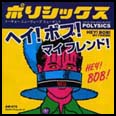Spoozys, SES, Korean clubbing, Pump, The People Crew, Cool
"We're all Spoozys" p.51; "The Korean pop scene - then and now" by Mark Shears, p.37; "The cover girls of Korean hip hop" by Kiyomi Fukuyama & Miyuki Kawasaki, p.38; "The People Crew: Korea's hip hop icons" by Patty Chung, p.40; "Pump up the volume" by P. Chung, p.41; "Clubbing Korean style" by P.Chung, p.42; "Keeping it cool" by P.Chung & M.Shears, p.43 / Tokyopop, July 2000, Issue 3-10
"Hip hop has taken off in Korea not only in the musical sense, but in fashion, lifestyle, and philosophies. We see hip hop as a sub-culture of our society. Everybody thought that hip hop was just another trend, but it's here to stay. Obviously we look to the west for inspiration, but we extrapolate the U.S. influence and 'culturalize' it into a uniquely Korean entity."
Pilipino tv soap actor singers
"Filipino Soaps for the World", by James Hookway, Far Eastern Economic Review, 28 Mar 2002, pp. 42-5

The article talks about how ABS-CBN Broadcasting Corp. in Manila is trying to market its tv soap operas around the world.
A more reliable money-spinner for ABS-CBN might be how it is now able to use its stable of soap actors to star in movies and make pop music. Thailand's Grammy Entertainment PCL has long used its stable of singers and actors interchangeably. Singer Tata Young, for example, is as well known for her acting roles in Thailand as she is for her bubblegum pop songs.
ABS-CBN is now doing the same thing. One actress, Claudine Barreto, is currently starring in a daily soap opera and a recently released movie for which she also sings the soundtrack. "We exploit all the different platforms so they bring in more revenue, rather like Time Warner or Disney," [chairman & CEO] Lopez says.
The test of that strategy is a new boyband which releases CDs on ABS-CBN's own Star Records label. Known as "The Hunks," the band is made up of five young male actors from the company's soap operas. They have already toured Filipino communities in the United States. "It was a big success," Lopez says. "Grown women were becoming hysterical."
(Where's the proof?! How many times were women's panties flung onstage, eh? Such statements about audience reaction have to be challenged and verified. Otherwise, people will start to think that Filipino women tend to be overly passionate and melodramatic... but wait! Maybe there's some truth to that. Maybe it would help explain why Filipino women (and men) have gotten so many roles in recent musicals like Miss Saigon.)
Nguyen Dat / Da Vang, Poysics, Devo
"Vietnamese Steel" by Amit Gilboa. Giant Robot, #25, p.53
"New Wave Mutants" by Martin Wong, p.56
"Are We Not Mark Mothersbaugh?" interview by Martin Wong, p.56

"...While any 14 year old can cruise Saigon's busy streets on a scooter, you'll need an an nhac giay phap (musician's license) in order to perform in public.
Nguyen Dat laughs as he shows me his license... The grainy photograph belies the fact that this man is essentially the Ozzy Osbourne of Vietnam..." [from Vietnamese Steel]
"Hiroyuki Hayashi had a moment of clarity when he first saw a music video by Devo. That's when the singer, guitarist, programmer, and self-described Tokyo New Wave Mutant realized his mission in life -- to wear a jumpsuit and rock out to an odd, hyperactive beat."
Q: What exactly is your relationship to Devo? Does [your] CD title Hey! Bob! My Friend! refer to Bob Dobbs (the Church of the Sub-Genius icon who adorns Devo album cover art)?[from New Wave Mutants]
HH: Devo is the very reason why I started Polysics. When I first saw the vbideo of "Satisfaction," lightning struck. The Gold of Rock appeared in my life. That's how big the impact was on me! The reason for starting Polysics was only to wear a jumpsuit, play the guitar, and to sing. I've mentioned this to Mark Mothersbaugh. When Devo first came to Japan, it was 1978, the year when I was born. I feel a strange relationship with them. "Hey Bob!" was named so that all the Bobs in the U.S. will listen to our music. (By the way, who is Bob Dobbs?)
"In the late '70s, Devo donned yellow jumpsuit uniforms, plastic hair, and flower-pot hats and played jerky, deconstructed pop heralding the devolution of society... Today, Mark Mothersbaugh, the focal spud boy, helms the Mutato music studio, where he makes soundtracks."
Q: Is there an extra-large Devo following in Japan?[from Are We Not Mark Mothersbaugh?]
MM: I used to produce and write a lot of songs for bands in Japan. You know Hajime Tachibana from The Plastics? I wrote most of the songs on one of his albums.
Of course, there was a time when we were selling out Budokan. MTV didn't exist yet, and we made these films and showed them before we'd come out.
We showed a concert in Hollywood with kids going wild in the audience. Japanese kids saw the video and thought, "Oh, that's what we must do."
The security people who usually had nothing to do but look constipated saw all these kids get on stage and didn't know what to do. Later, there would be a line of cops with linked elbows standing in front of us like they were protecting their children from the deadly influence of Devo.
CoCo Lee
"CoCo Motion". A Magazine, February / March 2000, p.31
Andy Lau
"andy lau... King of Hong Kong". A Magazine, February / March 2000, p.31
Fuji Rock Festival '99
"This is Tokyo; This is a party" by Simon Bartz, tofu magazine, Fall / Winter 99/00, 2nd issue, the [commercial] issue, pp.54-5
report on the 3rd annual Fuji Rock Festival
Everything Thai, #1, Winter 2000
The reader is challenged to identify 7 male popstars and pop groups. Hints and photos are given.
Basement 31
"What the hell is that noise coming from the basement?" (interview by Heidi Guttierez), Bamboo Girl, #9 (Jan 2000), p.79-83
Dennis Au, CoCo Lee, Telly Liu
"Reaching for the stars" by Tracy Jan, Taipei Journal, 10 March 2000, p.4
This article is subtitled, "Talented Asian Americans see Taiwan as a springboard to fame in the entertainment industry. They come here to broaden their fan base and gain industry inroads."
Most of the article is based on interviews with Au and Liu.
The 24 year-old Au, was born in L.A. and moved to Taipei in '98. His R&B group, G-Force, recently released their first album.
"It's hard to make it in this industry, but it's easier here than in America," said Au. "In the States, Asians encounter discrimination and face a glass ceiling, especially in this business."
The article says that Au models to support his music career, and has appeared in several music videos (including those of CoCo Lee), television commercials, and clothing campaigns.
Liu, also 24 years-old, was born in Brazil and grew up in the States. He graduated from UCSD, majoring in EE and Chinese Studies. Before graduating, he studied Chinese at National Taiwan University
in '97. His modeling career started at that time, when a friend took him to a local modeling agency. That year, he appeared in runway shows, print ads and tv commercials. He recently had a role in a
Chinese (Taiwanese?) television movie, playing an army enlistee.
The article continues: "Starting his career in Asia, Liu admits that he's had to make a few cultural adjustments. Though he can speak Mandarin, he said he still has to be careful not to offend people who may mistake his bluntness for cockiness.
'The most frustrating part is communicating with locals in the business... People in Taiwan often mask what they really mean by being less direct or too courteous.'"
Liu echoes what Au said about an starting an entertainment career in Taiwan versus the U.S.: "I don't think that people here [in Taiwan] really understand what it means to live in a racist society... For me, acting only became possible when I came to Taiwan."
Something about Flying
"Rockers or doctors?" by Vicki Cheng, (Raleigh) News and Observer, 16 May 2000
RZA (Wu Tang Clan)
"Shaolin Temple's Prodigal Son; Monk Shi Yanming's return to Shaolin after his defection" by Chen Xing Hua, Shaolin Temple, Spring 2000, pp. 76-80
Hip hop star, RZA, is a student of this "most flamboyant of the Shaolin Temple graduates". After being in the States for 7 years, Shi returned in September of last year during the 6th international Shaolin Temple festival. He was accompanied by a 50-person entourage, which included RZA. Shi recalled touring the temple:
After we saw Great Grandmaster Monk, Shi Suxi, my students performed in front of the Temple and RZA, the abbot of the Wu-Tang Clan, rapped on the stairs of the Shaolin Temple. That is the first time ever. Nobody has done that. Even if people didn't understand what he was rapping, people could feel his positive qi and respect and deep understanding."
The author ends the article: "Following Shaolin Temple, Yanming and RZA pressed onwards to the next martial mountain, Wudangshan. That's right, the hip-hop abbot of Wu-Tang Clan went to the real Wutang, but for that story, you will have to wait for an upcoming issue..."
